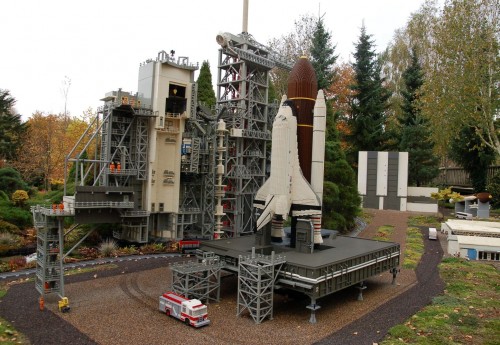It’s a good idea to be yourself, not only because everybody else is taken, but because trying to be anything else doesn’t usually get you very far. - Chris Guillebeau

It's a question that is easy to ask but hard to answer. What's amazing is how glib and cheesy it sounds when you try to describe its state of being its state of being. Foundry is not so much an organization as it is an experience; it focuses more on "doing" rather than "being."
So what is The Foundry? How about I start with what we do:
Participants are trained in the form and function of high-end, lightweight management technology. A high-leverage, precision-execution oriented set of documents that are easy to manage from, communicate the weekly snapshot of the company and allow managers to document their process as they push the frontier of their company forward. We use two documents, each are no longer than two pages. The quarterly planning document is called a MOKR (Mission, Objectives, Key Results) and a weekly planning Management Report that progresses the company to accomplish the quarterly objectives it sets for itself.
CEOs (and Foundry admins) are required to prepare a Management Report each week and upload it to their file within the Foundry Dropbox Folder by 6pm SHARP each Saturday. These documents reviewed by each CEO within a cohort. Each participant views the document with "revision marks" turned on and holds each other accountable for spelling, grammar and format defects. They also review each company's progress, plans and problems, keeping in mind that they are looking to contribute to assisting in any way possible.
On Monday morning they meet at 7:30am SHARP ready to add value to each other by providing insight, solutions or introductions within the their respective networks over the course of an hour so that the group progresses and learns faster together than any one individual would otherwise.
Foundry's role in that meeting is cultivate and batch together commons problems or challenges the cohort is facing ans solve them collectively - often leveraging a group discount or small sponsorship if the solution must be purchased.
The last requirement is to conduct a project review every 4 weeks which serves to model a board meeting. CEOs are encouraged to invite mentors, advisors, potential investors and other participants to engage in a dialoge about the monthly progress (things that are DONE and NOT DONE), personal and organizational learning, forward thinking plans and problems. It's typically a proverbial ass-kicking about your efforts to manage and guide your growing baby.. er, startup. It's an exhausting hour and a half but it provides clarity.
That's it. That's what we do. No fancy pants stratitegery. No superlative "crush it" dialogue. It's that simple. And it's effective.
Here's proof: 7 out 10 startups fail within the first year. 7 out of 10 Foundry companies survive.
So how do we generate the results that we do? The participants do everything. By participating in the Foundry, the act of contributing to each other creates their ownership in its existence. When participants no longer decide that the mechanics laid out above work for them, then we cease to exist. So far it's working.
That's why you can't talk about what it is unless you've been in it. To read and conceptualize what it's like is an order of magnitude different than to actually DO it - just like building a rocket ship out of legos doesn't qualify you to work for NASA.

Yes, we are a cult. Yes, we have rolling enrollment. So with these results and open-source management technology, why doesn't everyone join? The Foundry experience augments the startup experience which, like Fight Club, is confronting. Our management techniques aren't glitzy fancy pants Web 2.0 apps. They are 8x11 pieces of paper and they force you to publicly call yourself out to execute and announce to everyone when you don't. This alone confronts a lot of people who think that "getting the right answer" or "checking off a list" or " appearing to do complicated things with ease" makes them a good person.
For example I have seen experienced entrepreneurs get their asses handed to them in a Project Review or Monday Meeting by a 20-something student founder. And vice versa. This is a culture in which you learn, from everyone - ESPECIALLY when the message is packaged poorly. No one does that naturally, some stick around long enough to be transformed into someone that eventually welcomes this. Which is why most Foundry graduates are seemingly carved out of wood.
All of your inner demons, the thing that you have resistance around, will show up and be present in front of you and everyone else. Those uncomfortable and slimy "realities" that you do a good job of pretending aren't there, start announcing themselves loudly. What you decide to do at that point is what it means to be at risk to learn: you learn something, not about management or your company, but about yourself.
You will do this constantly, day in and day out.
We make a claim about forging entrepreneurs for life. On the surface it looks like company building but it's really the things that one learns when he or she is engages in the trench warfare of starting a company.
This is why Foundry accepts PEOPLE starting companies, NOT companies.
No comments:
Post a Comment